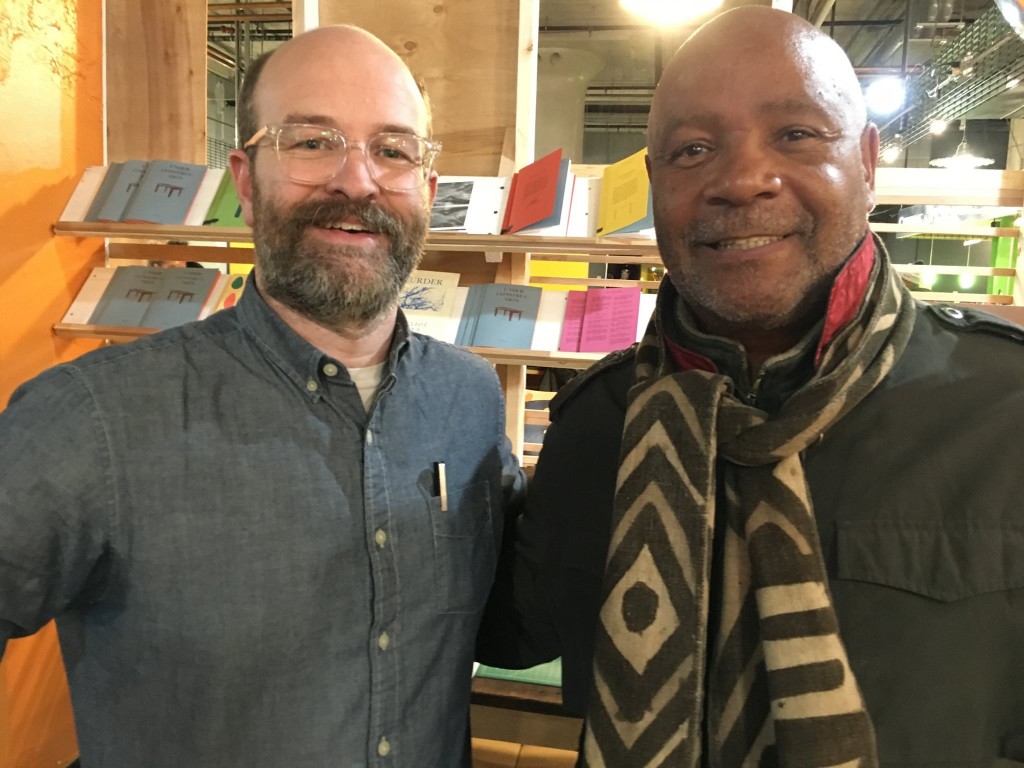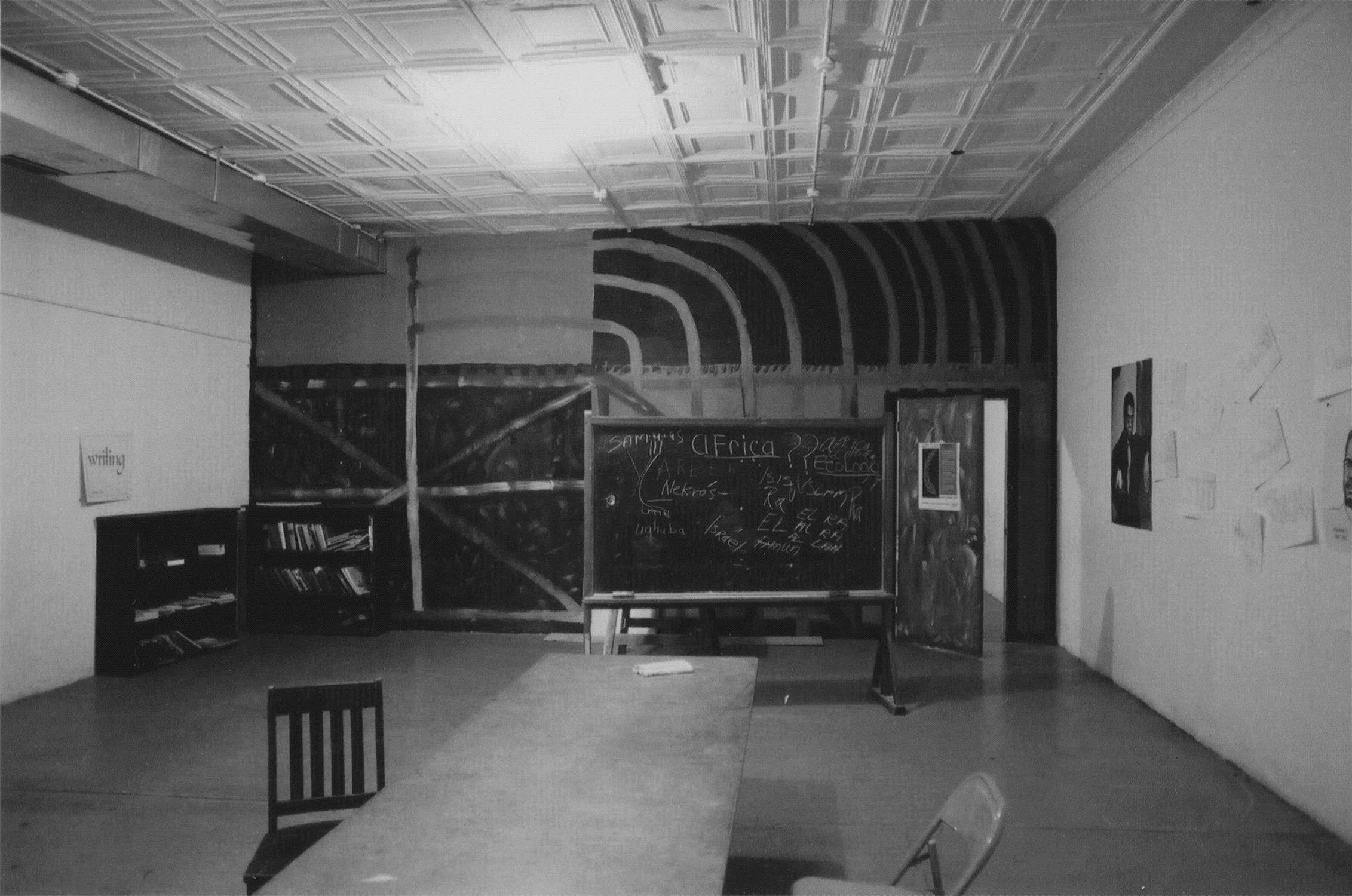
Lacey got our conversation with Emory Douglas down to 1′ and 0’s and we’re in the midst of cleaning it up. I cannot wait to get this out into the world! Here’s a quick taste…
Sam: So, in that way, you have the BPP doing something similar to, say the Wobblies at the turn of the century — of being on the street corner, being visible, saying, “look, here’s this thing and here’s the person attached to it. You could also be that person.”
Emory: Yeah, absolutely. We had a paper — 6:00 o’clock in the morning, people had assignments to go sell the papers. It was at the subway, the bus stations or wherever that may be.Sam: In that sense was the history and methods of, say, the Wobblies or the black press leading up to your work at the paper in your minds at the time?
Emory: Yes, yes. Because the context and the content was the connection.
